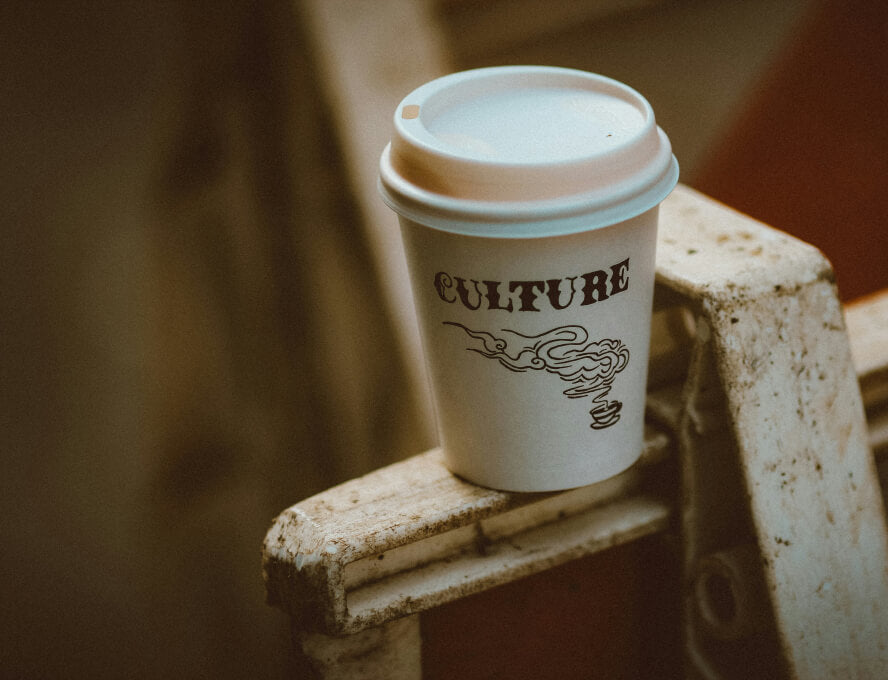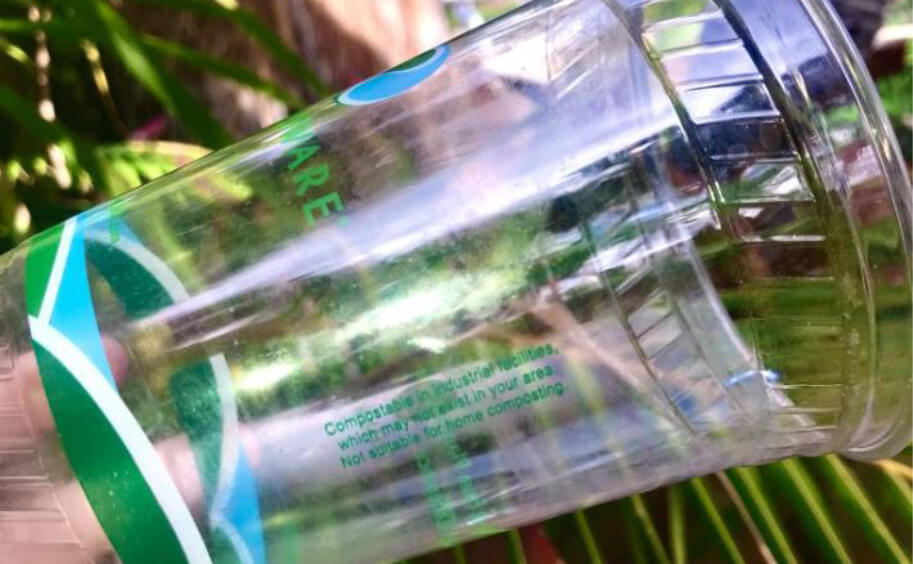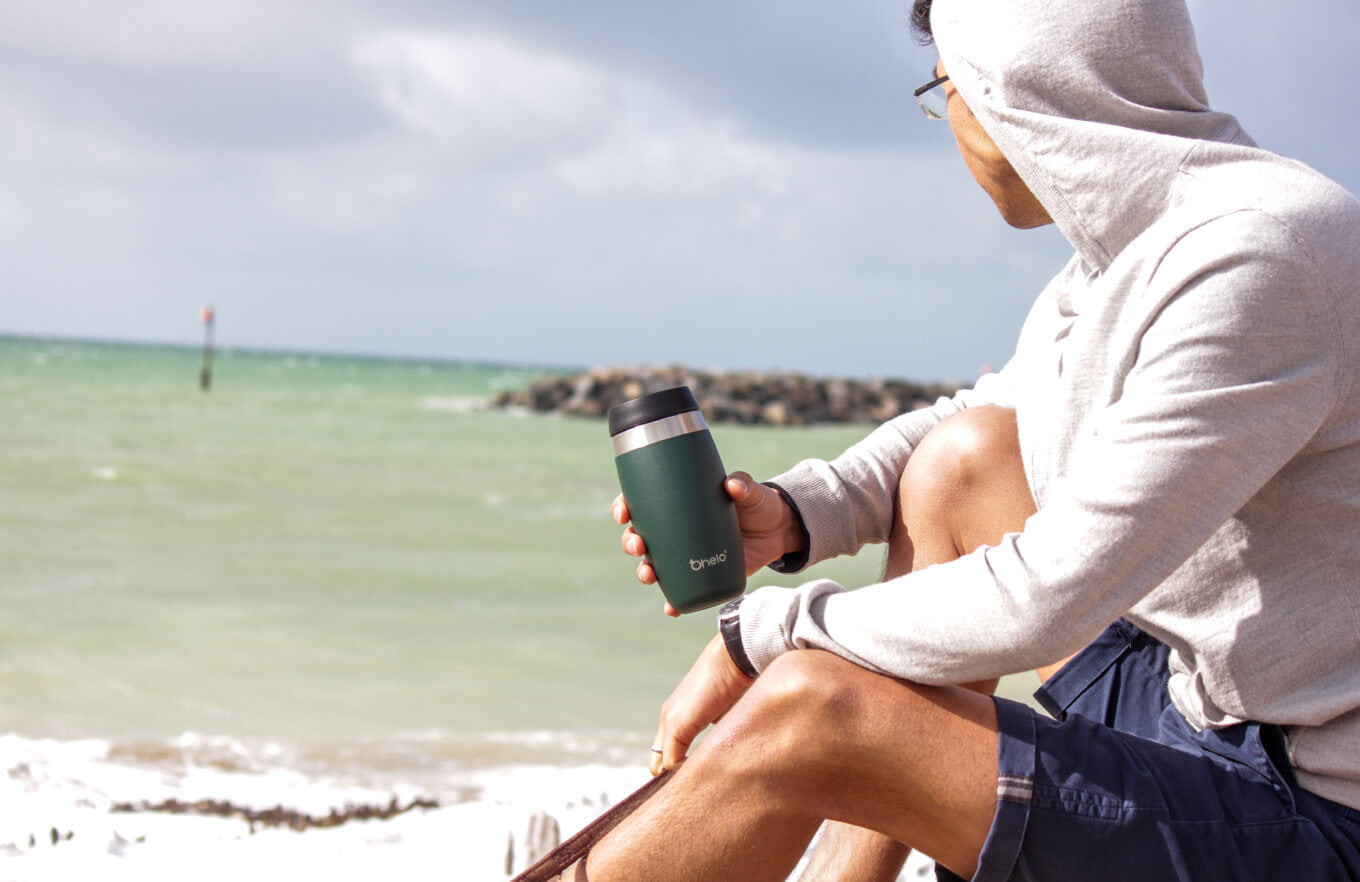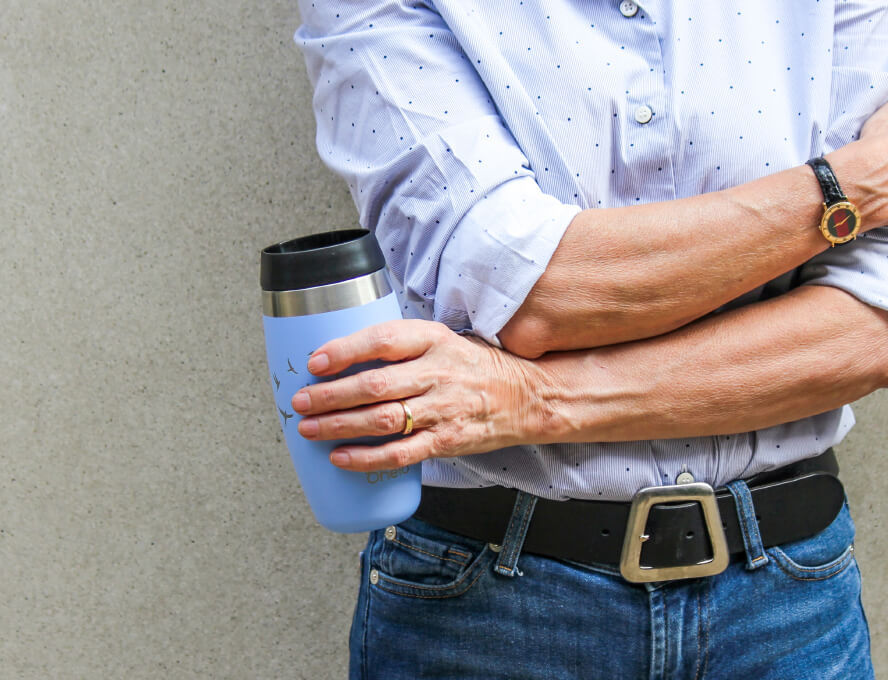Ohelo | Environmental
Is your coffee cup recyclable?
Many of us will reach for a cup of coffee first thing in the morning. In a society where we are always on the go, taking your coffee to-go has never been easier. There have never been so many different coffee shops offering your favourite brew. Those single use coffee cups have become a common sight at the office and in the park. So, are they really recyclable or are they going to landfill? What about reusable coffee cups? Are they really a green alternative or do they harbour just as many issues? Let’s take a look!
The Problem with Disposable Coffee Cups
Are standard single use coffee cups recyclable?

The short answer? Sadly no. Most single use coffee cups have a plastic inner lining. This makes them very difficult to correctly recycle, as the outer layer needs to be separated from the internal plastic layer. This requires a specialist recycling plant. In fact, only 0.25% of single use coffee cups are currently recycled in the UK.
Worse still, with the messaging around these single use cups being so confusing, many people are wrongly placing them into recycling bins. This can mean large amounts of recyclable material goes unrecycled due to the contamination caused by these single use cups.
Biodegradable Cups

While bioplastics are made from plant-based materials they are not the same as your veggie leftovers. Bioplastics need specific conditions to degrade. To be described as biodegradable they must pass the EN13432 test for industrial composting – this means it must disintegrate in 12 weeks and biodegrade within 6 months in an industrial facility, with 90% or more converted to CO2. Even if they do make it to a specialist facility to go through this process, you will still be left with microplastics at the end. Not good.
Compostable Cups
Compostable cups need specific conditions in order to be broken down, like high temperatures and moisture levels. As such they can’t simply be thrown onto your home compost bin – they need to be taken to a specialist facility. There are currently 0 local councils offering collection of compostable cups in the UK. This means that although they could technically be composted in an industrial facility, that is not currently possible.
So compostable cups currently need to be put in the rubbish bin.
Just because a cup is labelled as compostable does not make it also recyclable. For instance, PLA is a common bioplastic used for bottles and cups that is made from corn starch and sugar cane – although compostable in an industrial facility it is not recyclable.
The environmental impact of single use coffee cups
60 billion single use coffee cups are thrown away in the USA every year. 2.5 billion single use coffee cups are used in the UK each year. Only 0.25% of single use coffee cups are currently recycled in the UK, leaving 99.75% of these single use cups to go to landfill or incinerators.
These cups can take hundreds of years to decompose and even then, can leave microplastics behind. If incinerated, they can release toxic chemicals to the air. As a single-use item they deplete natural resources while contributing to the global plastic pollution problem.
Reusable Coffee Cups

If you are looking for a more eco-friendly way to enjoy your morning brew, then a reusable cup is definitely the way to go. From stainless steel to glass you can find many different options that can be used over and over again. Opt for a vacuum insulated cup and your coffee could be kept hot for hours. You can even save money when you take a reusable cup with you to pick up a takeaway coffee. But is it that simple?
Is your reusable coffee cup as eco-friendly as you thought?
Bamboo Cups

Bamboo cups are popular given their low cost and the green nature of bamboo as a material. However, bamboo cups can not be made from bamboo alone. They need the addition of melamine resins (plastic) to hold the cups together. As such bamboo cups won’t biodegrade and can’t be composted. They also can’t be recycled in traditional recycling plants.
Furthermore, studies have shown significant toxins are released into drinks inside bamboo cups.
Coffee cups made from recycled plastics
Definitely a better option than a single use plastic cup, coffee cups made from recycled plastics are still not ideal. Plastic may only be recycled 2-3 times before the material degrades. Once the plastic can’t be recycled it is a waste product, one that will take hundreds of years to decompose and leave microplastics behind.
Microplastics can also migrate from plastic cups / plastic linings to the drink inside. Something to think about before choosing a reusable plastic option.
Stainless steel travel mugs

Stainless steel is an endlessly recyclable material making it a great choice. Vacuum insulated they will keep your on-the-go coffee hot for hours, saving you from the dreaded lukewarm. But not all steel thermos flasks are created equally.
Is there lead in your vacuum flask?
Sadly almost all steel insulated cups on the market still contain toxic lead. LEAD is toxic to both people and planet, with the World Health Organisation stating "there is no level of exposure to lead that is known to be without harmful effects". Lead in water bottles is bad for the people making the bottles, can leach in to the environment when recycled, can make steel recycling unusable and can result in lead exposure to customers if the way in which the lead is covered is inadequate.
To avoid these issues it is best to choose a lead free stainless steel cup. This eliminates the problems caused by toxic lead and allows you to enjoy your coffee knowing you made a safer choice for you and the planet.
Some good news? All Ohelo vacuum flasks are lead free. Our stainless steel travel mugs don’t have any hidden nasties and are perfect for carrying your flat white to work. Our reusable cups are dishwasher safe and 100% leakproof, making it easy to throw your coffee in your bag without ruining your laptop, and easier to clean at the end of the day and have ready and waiting in the morning to go again. Say Ohelo to a travel mug that makes your everyday better!
So, there you have it.
Single use coffee cups are generally not recyclable and are a massive cause of plastic pollution every year. Swapping them out for a reusable cup will be a great first step in making that morning latte a little greener. Opting for a lead free stainless steel cup will not only mean your reusable cup is endlessly recyclable, but its free from avoidable toxins and won’t leach chemicals or microplastics into your brew. Cheers to that!

Similar Posts
1. Are plant based plastic alternatives sustainable? Here’s what you need to know
2. Why single use coffee cups aren’t widely recycled?
3. The Best Material for a Reusable Coffee Cup – Why We Use Stainless Steel
4. How to Make the Perfect Cup of Coffee in a Sustainable Way
5. From Brew to Pew: Why does your reusable coffee cup smell so bad?















